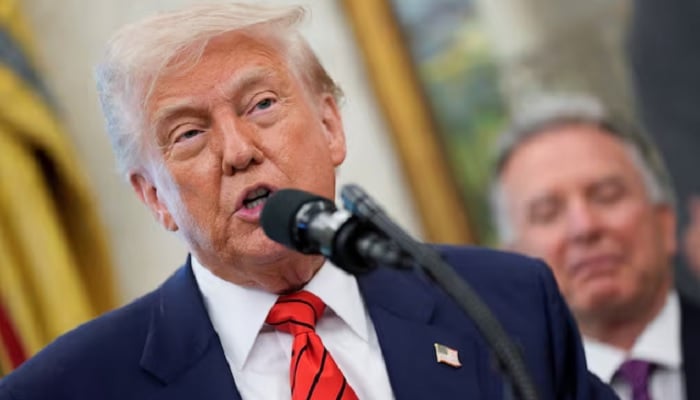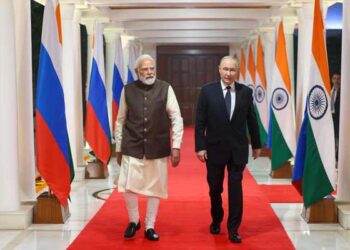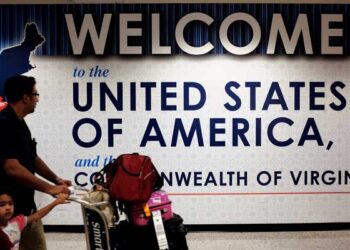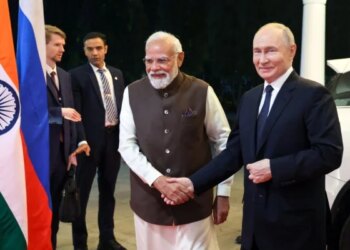Select Language:
- Trump announces that a U.S. oil company will soon be chosen to lead a new partnership aimed at developing Pakistan’s extensive oil reserves, signaling a strengthening of economic ties between the two nations.
- India is subjected to a 25% tariff by the United States, with the possibility of additional penalties, due to ongoing disagreements over trade policies and energy imports from Russia.
- Diplomatic negotiations between India and the U.S. remain inconclusive, heightening pressure on the Indian government as trade talks stall.
- President Donald Trump shared on social media that a trade agreement has been finalized with Pakistan, focusing on collaborative development of their large oil reserves, with the selection process for the lead oil company underway.
- Last week, Pakistani Deputy Prime Minister Ishaq Dar indicated that Pakistan and the U.S. were very close to sealing a trade deal, with progress made after discussions with Secretary of State Marco Rubio.
- Trump has been actively renegotiating trade agreements, threatening tariffs on countries he considers to have unfair trade practices, though some economists dispute the accuracy of his claims.
- The U.S. State Department and Pakistan’s Foreign Ministry highlighted discussions on expanding trade, especially in critical minerals and mining, following a meeting between Rubio and Dar.
- Dar mentioned ongoing discussions concerning US-Pakistan trade, with a committee at the Pakistani prime minister’s behest fine-tuning the agreements through virtual meetings.
- The U.S. announced it would impose a 25% tariff on Indian imports starting Friday, amidst talks to negotiate trade terms further.
- Trump signaled there might be room for negotiating lower tariffs, suggesting India’s current tariffs are among the highest globally and may be reduced significantly.
- The tariffs target India more severely than other partners and threaten to disrupt months of negotiations, potentially undermining strategic partnerships and regional balances.
- The penalties relate to India’s purchases of Russian arms and energy, with Trump citing concerns over trade barriers and India’s participation in the BRICS group, which he viewed as hostile.
- As the deadline for reciprocal trade agreements approaches, Trump also issued a proclamation imposing 50% tariffs on certain copper imports citing national security concerns.
- The U.S. had previously warned India about its high tariffs, which approach nearly 39% on agricultural products and even higher on specific commodities like vegetable oils and apples.
- Trump criticized India for its high tariffs and non-monetary trade obstacles, noting that India largely imports military equipment and energy from Russia at a time when the U.S. desires a shift away from Russian energy.
- India responded by stating it was analyzing Trump’s tariff announcements and reaffirmed its commitment to negotiating a fair and mutually beneficial trade deal with the U.S.
- During the first half of 2025, Russia remained India’s top oil supplier, accounting for 35% of India’s oil imports.







